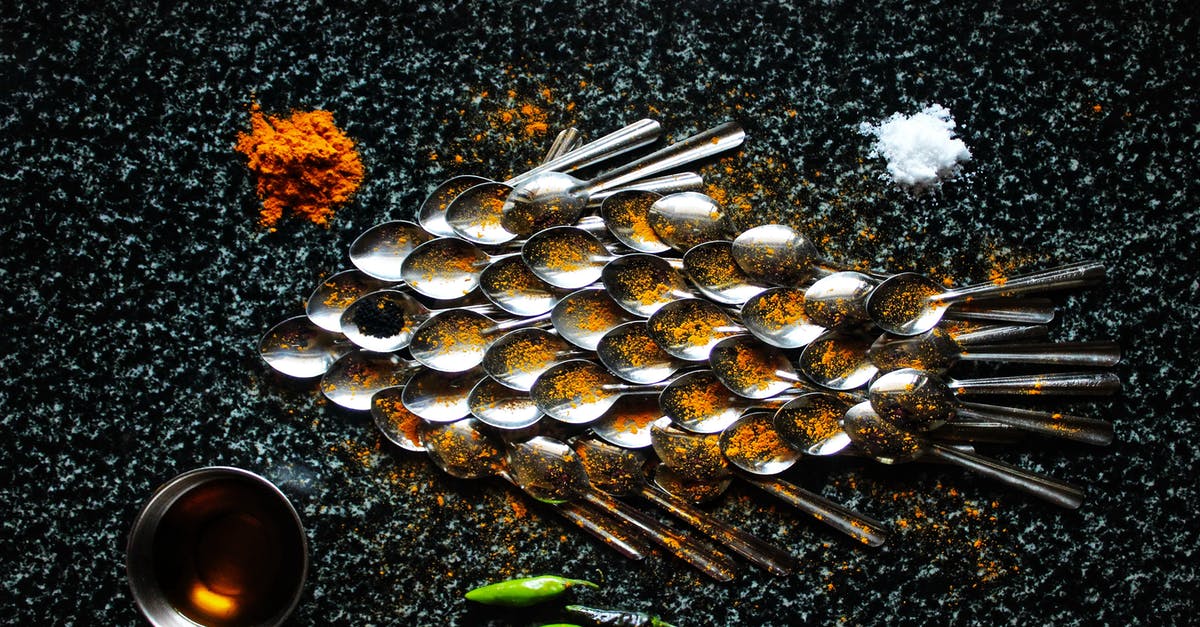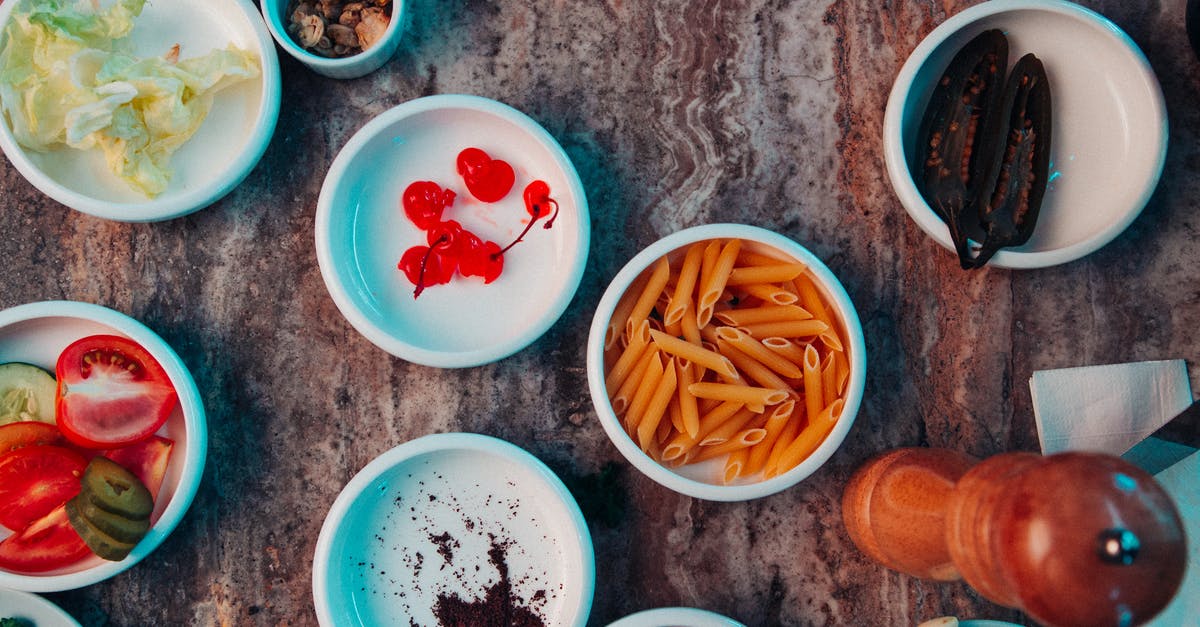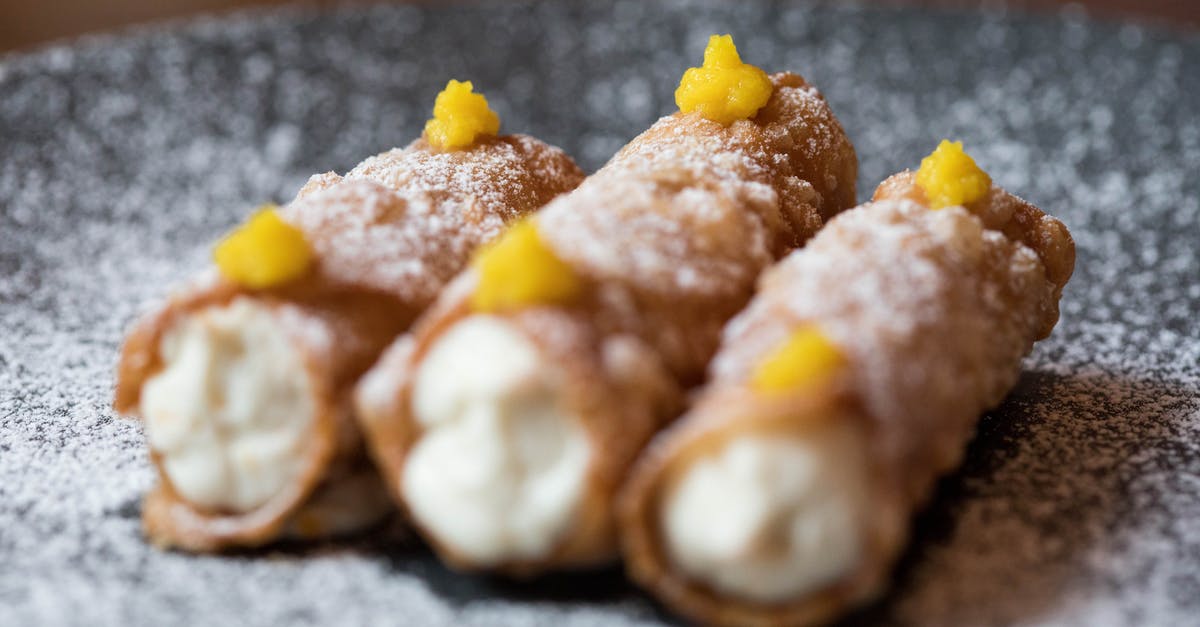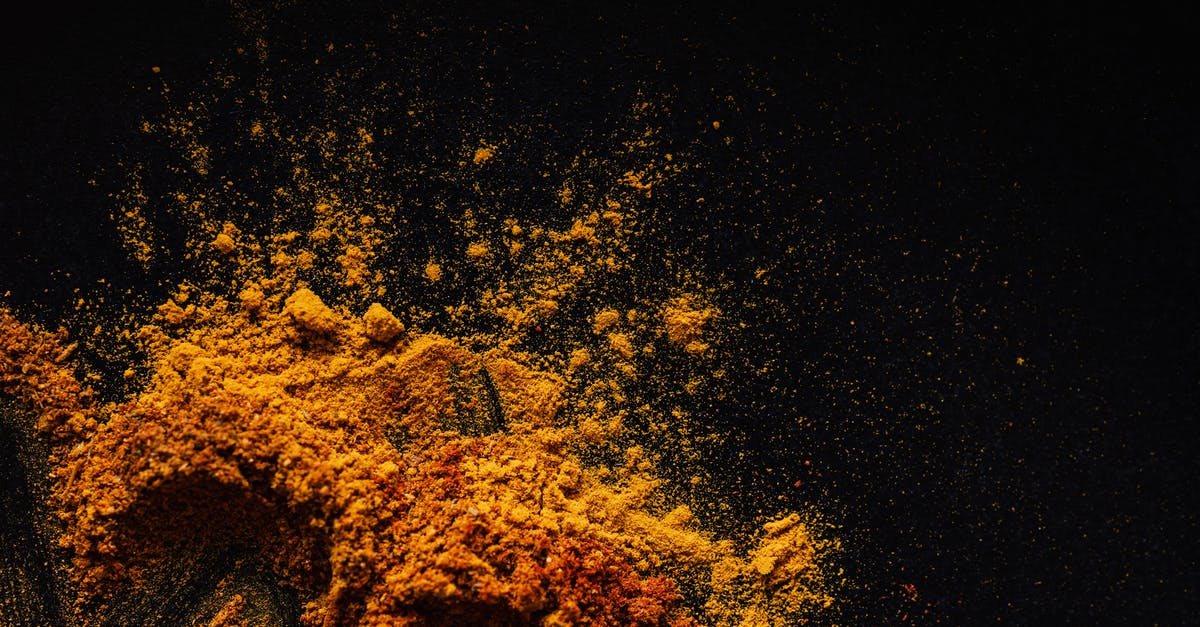Are vanillin/vanilla powder safe to use in savory dishes?

Vanilla beans are quite expensive, and I can buy cheap vanillin ($0.3).
So I'm wondering whether I can use vanillin instead of real vanilla for savory dishes: are they dangerous in high heat? I'm thinking of curry or onion soup.
Best Answer
The vanilla chapter of Ian Hemphill's "Spice and Herb Bible" says,
Vanilla is also delicious in savory cooking because it is not overtly sweet. An innovative Mauritian restaurant in Sydney served a delicious vanilla chicken [...] It was aromatic delicate and beautifully balanced.
The same book has a recipe for Vanilla Salmon Salad where vanilla seeds are scraped into the dressing.
I did a quick taste test using vanilla extract with various savory things from my fridge. Here are the results:
- Cheese: tasted fine, but I wouldn't call it a taste sensation;
- Vegeburger: nasty combination; I think the leeks in the burger were a problem;
- Avocado: actually quite a nice combination;
- Roasted aubergine: not bad;
- Tomato: fine;
- Savory omelet: not good; onions don't seem to work with vanilla extract;
- Baked beans in tomato sauce: very nice.
Note that using vanilla extract and a vanilla bean to flavor a dish are not the same thing. There is an amount of alcohol in the vanilla extract I used (bourbon) and this may completely invalidate the test. Having said that, the first indications are that alliums (onions, leeks, garlic etc) don't go with vanilla. So onion soup may not be a good plan. And since curry generally contains plenty of onion and garlic, I'm skeptical about using it there too.
Turning to the question of whether vanilla and vanillin become dangerous when heated, the answer is almost certainly no. That doesn't mean that heating vanilla is inconsequential. Harold McGee's "On Food and Cooking" mentions that vanilla beans contain more than 200 volatile compounds and notes,
Prepared vanilla extracts [...] are best added toward the end of cooking; any period of time spent at a high temperature causes aroma loss.
On the other hand, heating vanillin at normal cooking temperatures (i.e. normal for soup and curry) is not a problem. Its boiling point is around 285°C.
As another answer mentions, vanilla has a more complex taste to pure vanillin. Most of what you will read comparing the two will be very much in favor of using real vanilla beans in cooking. Instead of repeating this advice, I'm reminded of having read that in a Cook's Illustrated taste test comparing genuine vanilla to synthetic vanillin, the artificial flavoring came out on top. It's probably not be enough to conclude that vanillin tastes better than vanilla but may encourage you to forge ahead if vanillin is all you can afford.
Update: Having read @papin's suggestion that you may need to caramelize the onions, I just did a quick taste test with rostad lök (not sure how it translates from Swedish, the literal translation is toasted onion). It tasted slightly better but still not great. Again, I'm using vanilla extract so my taste test is not necessarily valid.
Pictures about "Are vanillin/vanilla powder safe to use in savory dishes?"



Quick Answer about "Are vanillin/vanilla powder safe to use in savory dishes?"
Vanilla goes well with savory dishes.Is vanilla powder toxic?
When taken by mouth: Vanilla is LIKELY SAFE when taken by mouth in amounts commonly found in foods. However, some people are allergic to vanilla. It might also cause headache and sleep problems (insomnia), especially for people who manufacture vanilla extract.Is vanillin powder same as vanilla extract?
You're familiar with vanilla extract, but what about vanilla powder? Made from vanilla beans, vanilla powder has a more intense vanilla flavor than vanilla extract and can be used not only in baking recipes but as a natural sweetener.Is vanillin safe to consume?
Unfortunately, there is no nutrient, vitamin, mineral, or other health benefits in synthetic vanillin and studies show that consuming synthetic vanillin may trigger allergic reactions, digestive disorders, and migraine headaches.Can I use vanilla powder instead of vanilla extract?
You can also substitute vanilla powder for vanilla extract in a 1:1 ratio\u2014it's useful if you're looking for a dry, alcohol-free alternative. Vanilla powder has the consistency of powdered sugar and ranges in color from white to sandy beige.Is Vanillin Safe?: What is It \u0026 Should You Eat It?
More answers regarding are vanillin/vanilla powder safe to use in savory dishes?
Answer 2
Vanilla goes well with savory dishes. Chef Michael Roberts, from the 1980s Trumps restaurant, used it as one of his secret ingredients, breaking with the spice’s traditional use. He had several shell fish dishes with vanilla. He credited Alain Senderens, one of the forces in French cooking pushing for new flavors and methods, for the combination, but Roberts took it to new places. Mixing it with curry seems natural to me, but onions, I sense, may need to first be caramelized. This is type of thing one needs to experiment. Before Roberts died, he spent some time traveling India to absorb some of its cuisine, which may have resulted in some recipes.
The pure form of vanillin is just one of the main aroma components of vanilla, which being a natural substance, has hundreds more aroma ingredients. So if it is "safe" to use vanilla then it should be safe to use vanillin. You may compromise and use vanilla extract instead of the vanilla beans. Look at Stephie's answer for why use the natural version and some suggestions of to keep its richness.
When I try a new flavor pairings I start by exaggerating the flavor and using more than I would use if I were serving the dish to others. For vanilla extract (the commercial brand in US supermarkets) I would start at 1/2 teaspoon of extract for each cup of liquid in the dish and then bring it down until it harmonizes.
Answer 3
I'm not quite sure what you mean by "dangerous". But rest assured:
Both real vanilla and vanillin are used at high heat - think of baking!
Therefore, I would not expect any of these to change their flavour in hot dishes.
As to the use of vanilla in savory dishes: There are plenty of recipes that use vanilla, my first thought was a venison sauce with red wine, pepper and vanilla. So nothing "weird" here.
BUT IMHO: I wouldn't substitute vanillin for genuine vanilla. The taste is quite different. We have "learned" to associate the label "vanilla" with the specific taste of vanillin, especially with pre-made desserts and sweet dishes. Real vanilla has a much more complex flavour and I'd be afraid that the vanillin would be giving a savoury dish a somewhat "desserty" touch. Admittedly, I'm a bit of a purist, food-wise, but I'd expect savory recipes with vanilla to be a bit on the "exclusive" and "exotic" side, so why not treat this as a special occasion and splurge on real vanilla?
Taking Jefromi's comment into account:
You might want to consider adding the vanilla towards the end of the cooking process or to the finished dish, keeping as much of the volatile aromatics as possible.
Sources: Stack Exchange - This article follows the attribution requirements of Stack Exchange and is licensed under CC BY-SA 3.0.
Images: Dibakar Roy, Ray Piedra, Valeria Boltneva, Karolina Grabowska
